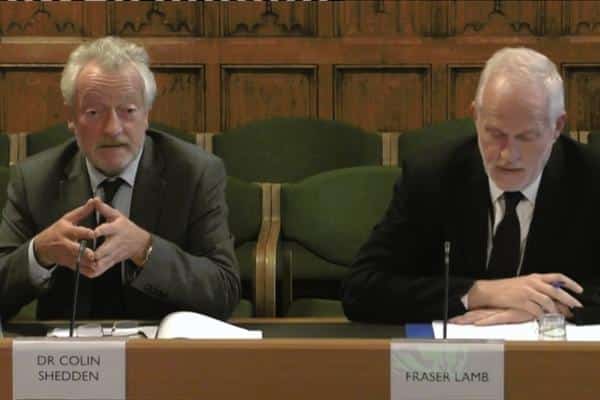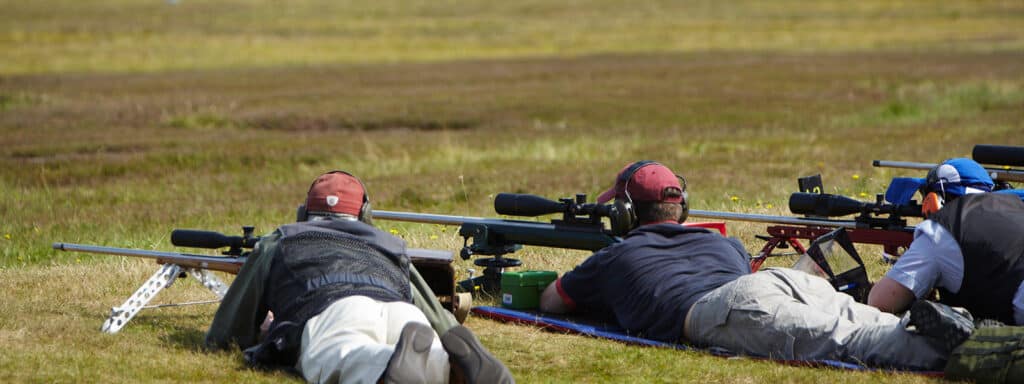
BASC gives evidence at Scottish firearms licensing inquiry
BASC’s Dr Colin Shedden provided evidence to the House of Commons Scottish Affairs Committee inquiry into firearms licensing regulation.
Get information on the legal shooting season for mammals and birds in the UK.
Apply for funding for your project or make a donation today
Comprehensive information and advice from our specialist firearms team.
Everything you need to know about shotgun, rifle and airgun ammunition.
Find our up-to-date information, advice and links to government resources.
Everything you need to know on firearms law and licensing.
All the latest news and advice on general licences and how they affect you.

BASC has responded to a Scottish Government consultation on the potential exclusion of the use of land as a target shooting range from class 15 permitted development rights.
The Scottish Government is carrying out a review of permitted development rights (PDR) as part of their wider planning reform programme.
PDR provide flexibility to carry out certain types of development without a planning application having to be submitted to – and approved by – the relevant planning authority.
Class 15 allows a temporary activity – or different use – to take place on land for up to 28 days, within a calendar year, without needing to apply for planning permission.
The consultation has come about because the Scottish Government is concerned that current class 15 provisions might be used to establish temporary firing ranges comprising of fixed targets. Also, they have concerns about the potential amenity impacts associated with such uses or activities.
The Scottish Government is seeking views on removing these activities from the class 15 PDR, and therefore they would require planning permission.
BASC has responded to consultation stating the proposal is not evidence-led and we believe it is both discriminatory and disproportionate.
You can show your support for target shooting in Scotland by rejecting the proposal by answering Q30 of the consultation with our suggest answer below.
This response relates to 6.2 Temporary Use of Land: Shooting Ranges:
Question 30: Do you have any comments on the potential exclusion of the use of land as a target shooting range from class 15 PDR? If such a change were taken forward, do you have views on the potential justification for exempting the activities discussed in paragraphs 6.2.4 and 6.2.5?
Response:
The context for change, listed in 6.2.2 through 6.2.6 does not, in my view, provide any evidence for a change in PDR. It is interesting to note that noise is listed as the potential main objection to shooting activities. There are, however, numerous exemptions for shooting activities listed in Sections 6.2.3 and 6.2.4. All of these activities have the potential to cause noise problems, so to identify one type of shooting activity as unsuitable for a PDR seems unfounded. It should also be noted that much target rifle shooting is conducted with guns fitted with sound-moderators, which considerably reduce the noise signature. This option is not available for activities such as clay pigeon shooting, an activity to be exempted under the proposal.
6.2.2 states that “the use of firearms is subject to separate licensing and checks by Police Scotland to ensure public safety. For ranges this will include a requirement of a safety certificate issued by the National Rifle Association or a similar body, as well as having adequate insurance being in place.” This is only partially correct. On a formal Home Office Approved Range, such conditions may apply, but on other types of range that is not the case. All rifle shooters permitted to shoot live quarry, and possessing an open certificate, would normally have as part of their conditions the phrase, “ …and for zeroing and practice on ranges, or land where the holder has lawful authority to shoot.” In such circumstances, anyone with an open certificate can set up a fixed target on land they deem suitable to zero and practice. In short, a temporary range.
Were there to be several shooters who have permission to shoot live quarry on the same piece of land, they may decide to set up a temporary range where they can all zero and practice. Such a range would not be subject to safety checks by Police Scotland or have a safety certificate. There would be no requirement to set up as a Home Office Approved Club. As the targets used for zero and practice are likely to be non-permanent structures, no development would have taken place; therefore, no planning permission exemption would be needed. The use of such temporary ranges for zeroing and practice with rifles have taken place on land in Scotland and the rest of Britain for over a hundred years, without issue.
In conclusion, Section 6.2 does not support any changes to the current legislation. The proposal appears to have identified one particular type of shooting for vilification. Furthermore, the proposal is not evidence led and we would aver that it is both discriminatory and disproportionate. As such, BASC would actively oppose any such change.

BASC’s Dr Colin Shedden provided evidence to the House of Commons Scottish Affairs Committee inquiry into firearms licensing regulation.

BASC has urged MSPs to make substantial amendments to the Wildlife Management and Muirburn (Scotland) Bill following the publication of a key report.

The Northern Shooting Show takes place on the King’s Coronation weekend, with BASC members receiving complimentary admission on both days.
Sign up to our weekly newsletter and get all the latest updates straight to your inbox.
© 2025 British Association for Shooting and Conservation. Registered Office: Marford Mill, Rossett, Wrexham, LL12 0HL – Registered Society No: 28488R. BASC is a trading name of the British Association for Shooting and Conservation Limited which is authorised and regulated by the Financial Conduct Authority (FCA) under firm reference number 311937.
BASC Direct Ltd is an Introducer Appointed Representative of Agria Pet Insurance Ltd who administer the insurance and is authorised and regulated by the Financial Conduct Authority, Financial Services Register Number 496160. Agria Pet Insurance is registered and incorporated in England and Wales with registered number 04258783. Registered office: First Floor, Blue Leanie, Walton Street, Aylesbury, Buckinghamshire, HP21 7QW. Agria insurance policies are underwritten by Agria Försäkring.
If you have any questions or complaints about your BASC membership insurance cover, please email us. More information about resolving complaints can be found on the FCA website or on the EU ODR platform.